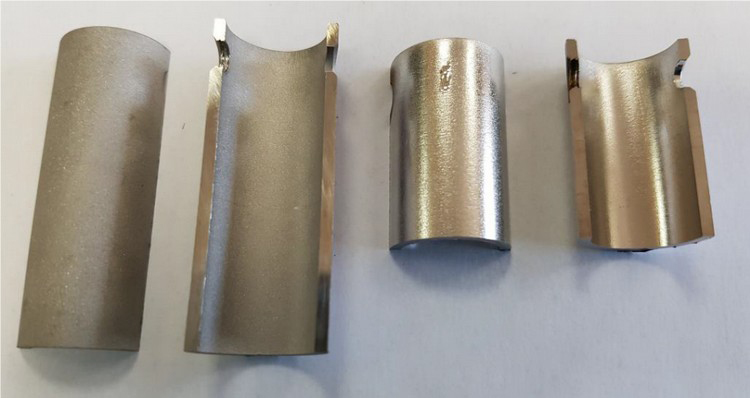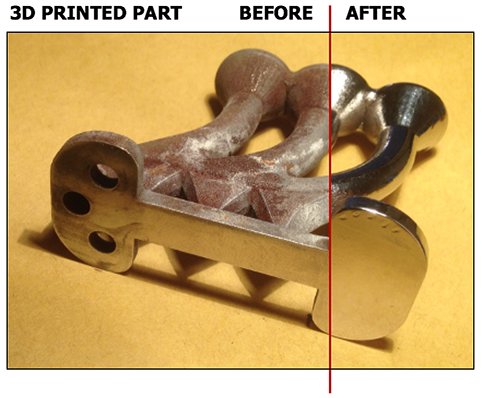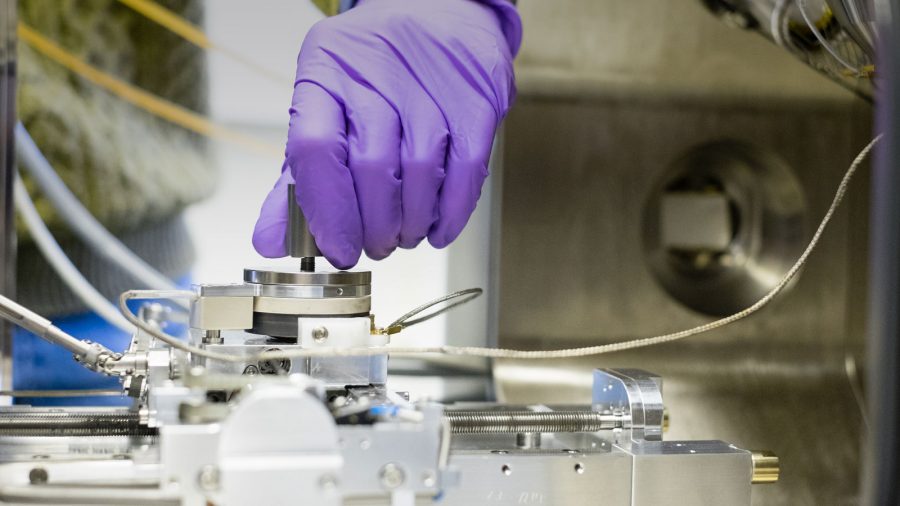A team of researchers, led by Dr Aleksey Yerokhin of The University of Manchester, has recently developed a novel electrochemical plasma polishing process, which will soon enable the benefits of 3D printing across multiple and previously unprecedented manufacturing sectors.
The research forms part of the Plasma Additive Layer Manufacture Smoothing Technology (PALMS) project, and benefits from investment by the Henry Royce Institute, offering real-time analytical equipment to validate the safety and environmental impact of surface finishing of 3D printed components.
3D printing offers countless opportunities within the manufacturing sector; from light-weighting to entirely bespoke production of metal components whilst reducing waste previously generated by traditional manufacturing techniques. However, despite significant advances made in Additive Manufacturing and developments in what can be achieved within 3D printing, crucial elements such as high surface roughness and texture of parts produced continues to hinder progress.
For the first time, researchers have built and are testing a novel electrolytic plasma polishing machine that unlike conventional finishing technologies, does not require environmentally harmful solutions to resolve surface roughness of 3D printed samples.
Current materials being studied within the PALMS project include printed titanium and nickel-cobalt alloys for biomedical applications and hardened tool steel for car manufacturing molds. The success of PALMS is likely to open the door for a number of manufacturing sectors, including aerospace and medical industries, where the surface finish of components is highly critical.


- Stainless steel tubes before (left) and after (right) electrolytic plasma polishing. The tubes were cut after processing in order to observe the finish on internal surfaces.
- stainless steel additively manufactured sample before (left) and after (right) electrolytic plasma polishing.
Speaking on the PALMS project, Dr Yerokhin comments:
The PALMS project looks to develop a smoothing process that simultaneously addresses the industrial challenge of the quality of surface finish while offering environmentally friendly solutions that reduce the use of harmful chemicals, including hydrofluoric acid.
To support the project, researchers are using the Royce funded atmospheric pressure quantitative gas analysis equipment. This provides online monitoring and comprehensive characterisation of the complex by-products of plasma-assisted electrochemical processes, enabling the development of intelligent technologies for future manufacturing.
Without this investment we would not be able to verify the low environmental impact of the new finishing process – this is one of its main selling points so it’s essential that we can analyse this.
This research forms part of the Royce’s Materials Systems for Demanding Environments theme, led by The University of Manchester, which looks to enable a full development cycle for new material systems from material design to manufacture, characterisation and testing.
To find out more about the PALMS project, visit the website here.
For more information on the Royce equipment for surface coatings contact:
Sarah-Jane Clelland
Research & Facilities Manager
The PALMS project is a pan European project funded by European Commission involving The University of Manchester, Wallwork Heat Treatment, Poly-Shape, Centro Ricerche Fiat and Wisildent.



